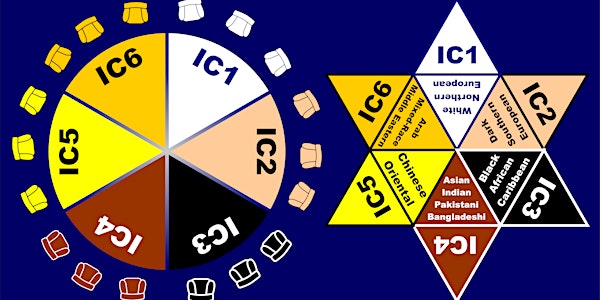





Honest Ethics Morality Righteousness Goodness Virtue Decency against Racism
goodness virtue virtuousness uprightness decency integrity worthiness rectitude probity morality ethicalness high-mindedness justice honesty
Location
Reparation Corner, 41 - 47 West Green Rd, Tottenham, Haringey. N15
41 West Green Road London N15 5BY United KingdomAbout this event
Alignment of ADEJA with Police Code of Ethics and UK Government's Protected Characteristics for National Security
I. Introduction:
ADEJA, the African Diaspora Equity and Justice Alliance, is a transformative initiative established by Reparation Nation Limited, headquartered in London. ADEJA seeks to create a Black African Autonomous Entity for Empowerment and Reparatory Justice, focusing on the well-being, empowerment, and historical justice of the IC3 Black community. This document explores the alignment of ADEJA with the Police Code of Ethics and the UK government's concept of "Protected Characteristics."
II. ADEJA's Mission and Principles:
ADEJA is dedicated to the advancement of the IC3 Black community's well-being, unity, and historical reparatory justice. It recognizes and uses the UK Police IC codes, including IC3 (Black), as a means of classification. ADEJA complements the Police Code of Ethics by operating on a mission grounded in righteousness, empowerment, unity, and reparatory justice.
III. ADEJA and UK Government's Protected Characteristics:
ADEJA aligns itself with the UK government's recognition of the value of race and ethnicity codes for good governance. The initiative acknowledges that the conservation of Protected Characteristics, including race and ethnicity codes, is crucial for national security. ADEJA aims to provide comprehensive information to ensure clarity regarding its objectives, particularly related to race and ethnicity codes.
IV. Reparation Assets and Alignment:
ADEJA categorizes reparations into tradeable and non-tradeable assets, aligning with the principles of righteousness and reparatory justice. This aligns with the Police Code of Ethics, emphasizing the need for ethical and professional behavior within policing. ADEJA's commitment to evidence-based reparatory justice complements the ethical principles outlined in the Code of Ethics.
V. Alignment with Social Credit System:
ADEJA's implementation of a comprehensive social credit system, emphasizing Black Betterment, aligns with the Police Code of Ethics' goal of guiding ethical and professional behavior. The social credit system incentivizes and recognizes actions that contribute positively to the IC3 Black community, fostering unity, empowerment, and reparatory justice.
VI. Race as a Protected Characteristic in UK Law:
In the UK, race is recognized as a Protected Characteristic under the Equality Act 2010. This means individuals are protected against discrimination on the grounds of race, including racial harassment and victimization. ADEJA's alignment with race and ethnicity codes respects and reinforces these legal protections, promoting equality and justice.
VII. Improved Communications and Community Relations:
ADEJA's use of the same race codes as the police and UK government contributes to improved communications and community relations. By adopting standardized codes, ADEJA facilitates clear and transparent communication, fostering understanding and collaboration between the initiative, law enforcement, and the government.
VIII. Conclusion:
ADEJA's alignment with the Police Code of Ethics and the UK government's Protected Characteristics underscores its commitment to ethical conduct, national security, and the promotion of racial equality. By fostering collaboration and using standardized race codes, ADEJA contributes to a collective effort aimed at righteousness, empowerment, unity, and reparatory justice for the IC3 Black community.